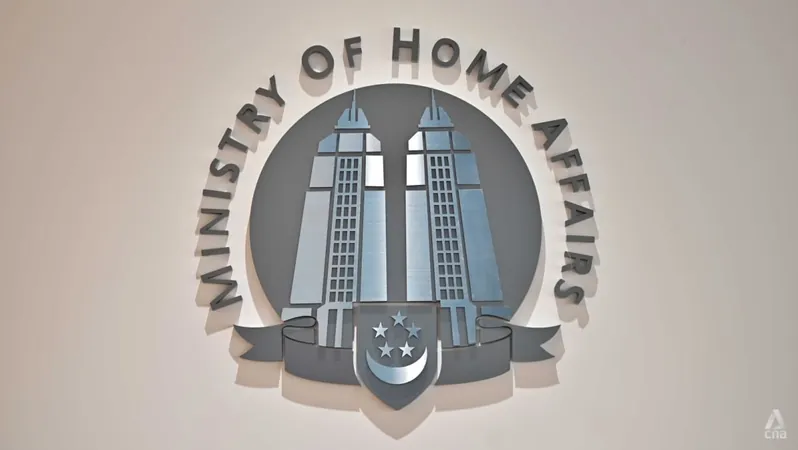
POFMA Correction Order Issued Against The Online Citizen for Misleading Article on Singapore’s Death Penalty
2024-12-16
Author: John Tan
POFMA Correction Order Issued Against The Online Citizen for Misleading Article on Singapore’s Death Penalty
SINGAPORE – In a significant move highlighting the government's stance on misinformation, The Online Citizen (TOC) has been mandated to issue a correction notice regarding an article published on November 22. This article made accusations regarding the state’s handling of dissent related to the death penalty in Singapore, which have been deemed false by the Ministry of Home Affairs (MHA).
The order, enacted under the Protection from Online Falsehoods and Manipulation Act (POFMA), stipulates that TOC must not only amend the original article but also share the correction on its social media platforms—including Facebook, Instagram, and X (formerly Twitter)—to ensure that the erroneous claims do not spread further.
The MHA noted that the claims made by TOC suggested that the government uses POFMA directives to suppress dissenting opinions surrounding the death penalty, stating, 'This is false. The state only issues POFMA Directions if a false statement of fact has been communicated, and if it is in the public interest to do so.' The ministry clarified that such directives allow for the official government stance to be presented alongside the original post without requiring the removal of the misleading content.
In addition to addressing the death penalty issue, TOC’s article also took aim at Home Affairs Minister K. Shanmugam, alleging that he contradicted himself regarding Singapore's drug policies during a CNN interview. The MHA rebutted this claim, asserting that the article misrepresented the context of Minister Shanmugam's statements, emphasizing that omitting relevant information and selectively quoting the minister leads to false interpretations of his remarks on drug policies.
To further substantiate its position, the government fact-checking website, Factually, provided clarifications that dismantle the allegations put forth by TOC’s editor, Terry Xu, underscoring the importance of responsible reporting and accuracy in public discourse.
As this situation unfolds, it serves as a crucial reminder of the critical role accurate information plays in democratic discourse, and how misleading narratives can provoke significant public concern. The ongoing challenges to misinformation highlight the necessary balance between freedom of speech and the obligation to ensure the public receives factual information.
The requirements for TOC to publish corrective measures not only aim to rectify the current misinformation but also to instill a greater sense of accountability in the media landscape of Singapore. As the country navigates complex issues surrounding the death penalty and drug laws, clear communication will be essential for public understanding and engagement.



 Brasil (PT)
Brasil (PT)
 Canada (EN)
Canada (EN)
 Chile (ES)
Chile (ES)
 España (ES)
España (ES)
 France (FR)
France (FR)
 Hong Kong (EN)
Hong Kong (EN)
 Italia (IT)
Italia (IT)
 日本 (JA)
日本 (JA)
 Magyarország (HU)
Magyarország (HU)
 Norge (NO)
Norge (NO)
 Polska (PL)
Polska (PL)
 Schweiz (DE)
Schweiz (DE)
 Singapore (EN)
Singapore (EN)
 Sverige (SV)
Sverige (SV)
 Suomi (FI)
Suomi (FI)
 Türkiye (TR)
Türkiye (TR)